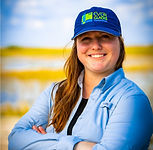


Keely Weyker
Director of Engagement & Outreach
Policy & Engagement
Keely Weyker is The Everglades Foundation’s Director of Engagement & Outreach and has a passion for environmental education and policy. She graduated from Georgia State University (GSU) in 2016 with a B.S. in public policy and a concentration in nonprofit leadership. While attending GSU, Keely interned for the Georgia Aquarium and worked for Fernbank Museum of Natural History, where she taught animal education. She also spent her summers working for a sea turtle hatchling rescue organization in Fort Lauderdale, Florida, called Sea Turtle Oversight Protection. Keely’s appreciation for the environment has lead her to pursue a career in protecting it. Keely enjoys spending her free time outdoors, hiking, boating, and capturing nature through photography.

